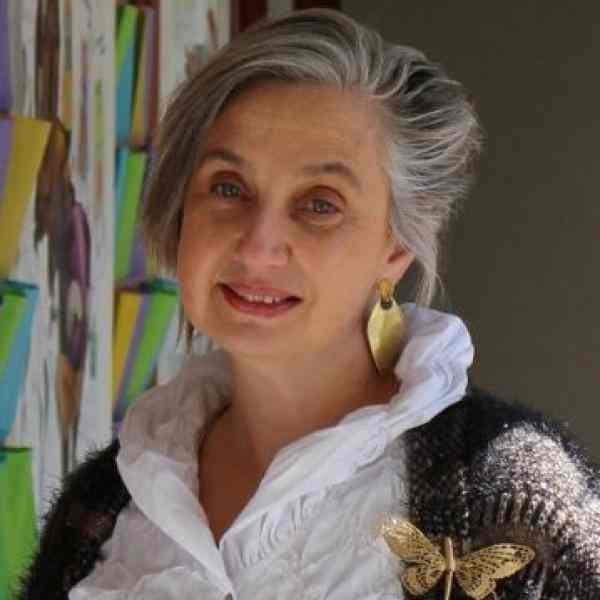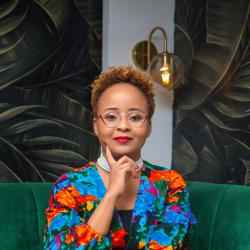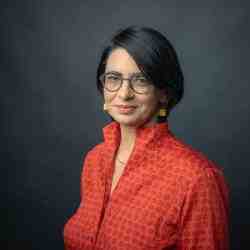Introduction
Carmen has set out to change the education system in Spain by identifying and empowering leading teachers who can ensure a transformation of their schools and their education processes. In the last 5 years Carmen has worked with 50,000 teachers in Europe and Africa and has become one of the main actors of the educational transformation in Spain, working closely and negotiating an education reform with the national government.
The New Idea
The New Idea
Carmen is empowering thousands of teachers, and their schools, to be leaders of change of the education system in Spain. She is the founder of Trilema Foundation, an organization created by teachers to lead other teachers as pioneers of a much-needed education transformation in Spain and other countries.
Carmen starts with the premise that teachers in are the most well-positioned to lead change in classrooms and schools, and are capable of leading a systemic change in the education system. Carmen identifies and works with the 10% strongest teachers of each school – the accelerating team or “Innova Group” – to empower and strengthen them, through training, shared leadership and recognition. She then enlists this Innova Group to work with, train and inspire the other 70-80% of teaching staff who have potential to implement a strategy that will allow progressive improvement and evolution within the school. (Carmen recognizes that the bottom 10-20% of teachers, unwilling to participate in positive change, are not worth focusing on)
Her model – which she metaphorically describes as a Rubik Cube – focuses on 6 aspects of the educational process that must be addressed simultaneously: curricular content, organization, in-class methodologies, assessment, personalized learning, and leadership.
In this context, Carmen has designed a methodology that trains the Innova Group of teachers to implement tailored solutions in these six areas that can move the other 70-80% to a next level. Through an inclusive process led by Trilema foundation, the schools and teachers are accompanied for a limited time, and are then provided the tools and autonomy to carry out the methodology on their own.
This model has been replicated with more than 50,000 teachers in 3,000 schools in radically different contexts: rural, urban, private, public, small, large, religious, non-religious etc.
Identifying and supporting leading classroom teachers is the kick-start point of Carmen’s work, but she also focuses on providing knowledge and content that will make the teachers’ job easier and improve the perception and value of teachers across society. This includes re-design of classroom materials; production of children's stories that will develop emotional intelligence and impart values; creating audiovisual productions that show the positive impact of leading teachers on schools and communities; leading collaborative initiatives with academic researchers and teachers; and consulting with government to improve educational policies, among many other actions. She is one of the co-authors of the White Paper on Teaching and is at the center of the political debate on education in Spanish political circles.
The Problem
The failure of the education system is a subject of ongoing debate in media, specialized forums and society in Spain, and teachers are frustrated. According to a survey conducted by the SM Editorial Foundation of 2,900 teachers across Spain, 87% concluded that the current education system does not prepare students for what is expected of them afterwards, and more than 80% believed that Spain’s current evaluation systems do not allow them to fully develop students’ capabilities.
There is an emerging consensus that the current school system based on a classical model focused on exercising memory skills is no longer valid in the 21st century. This only feeds the already growing mistrust of formal education and the bad reputation of the state school system.
In the past thirty years, there have been five substantial changes to the law governing the educational system resulting in one of the highest high-school drop-out rates of the Western world and the second highest in all of the European Union, standing at 25% in 2013 (according to an EU-Eurostat survey published in 2013)
The constant changes in education laws, lack of vision within the political system and reduced funding in recent years due to the economic crisis have led to an education policy viewed by all as desperately in need of modernisation. The low budget in many cases also means that teachers have little flexibility or time to access training, work on new methodologies or innovate.
These intrinsically Spanish challenges constitute a large aspect of the issue but they are only one part of the equation. Global issues also have substantial impact on the need for modernisation. The multiple advances in neuroscience and biological studies have made huge inroads in understanding learning processes. The capacity to personalise education to precisely target any one of the multiple intelligences identified is higher than ever, yet education systems remain broadly based on core skills and few real innovations have come into play.
Several education initiatives exist in Spain, but in general they work only towards one of the many areas of change – curriculum content OR methodologies OR evaluation – and few take into consideration the need for change throughout the whole school or school system as Carmen does.
The Strategy
Carmen’s methodology has three phases of implementation through six simultaneous fronts: curricular content, organization, in-class methodologies, assessment, personalized learning, and leadership.
In the first phase, she works with the management team to design a vision of innovation for every school that requests support. This begins with commitment from the leadership team (head master/mistress and principal), the genesis of an ambitious vision of change for the center, and the clear presentation of routes, speeds and evaluation indicators of that change, which ultimately are linked to improving student learning. She helps the management team to create vision, analyse needs, analyse staff, decide which teachers are going to be part of the process and define a positive narrative around how they envision their transformation. Then, she adapts the strategy for each school, according to its resources, context, capacity etc. The methodology and destination remain the same, but the journey to get there is tailored according to each management team.
In the second phase, Carmen, along with the leadership team, identifies an accelerating team, or Innova Group: a group of teachers, not necessarily in positions of organizational responsibility, but with a clear vocation and commitment to innovation who are eager to invest between 10 – 15% of their time to implement the strategy.
This is her theory of change: by working with the 10% leading teachers, she can accelerate towards a tipping point within the school, inspiring the other 70-80% of the team.
These groups receive a more intense and demanding training that applies to their daily classroom work and commit to advise and assist their peers.
In the third phase, Carmen focuses on teachers empowering teachers. She believes that the professional development linked to daily classroom transformation is one of the most powerful keys to educational improvement. When the teachers realize and see the learning improvement in their students as a result of the changes they have implemented, it is a huge motivating factor, and there is no turning back. That’s when innovation occurs, and when the school can start talking about a new mindset.
At this stage Innova Groups work more closely with their peers, classroom experiences are generalized and the process of change is more ambitious and produces new needs affecting aspects beyond the curriculum. It is an open stage, and the schools become increasingly autonomous in their journey. It is not expected that all schools adopt all the proposals of Trilema’s model, but that they choose their own journey, and ensure sustainable change with the time and resources at their disposal.
Carmen’s approach was initially to create and design training tools for each of the key areas in education. These detailed training modules were usually imparted on an ad hoc basis, but were soon developed to promote a building-brick training scheme that allowed long-term and systemic change within the school.
Carmen has designed a model that provides integrated and innovative change and accompanies teachers, and consequently their schools, through the six previously mentioned fronts:
1. Curricular content: defining what to teach, relevance of the content, interdisciplinary approach, working beyond textbooks, etc.
2. Methodology: Carment has created her own methodology based on cooperative and project based learning.
3. Assessment: focusing on the process, not only the results. Children develop their own portfolio, auto evaluation and peer-to-peer evaluation.
4. Organization: create and consolidate working groups and ensure optimal management of resources and people (time tables, sharing of responsibilities, creating a culture of collaborative work among teachers).
5. Personalized learning: placing the child in the center, training teachers as tutors, applying processes of metacognition, multiple intelligences, etc.
6. Leadership: training leaders and applying coaching methodologies to release the potential of the management team.
Carmen and the team know that at its most effective, classroom training should be designed by the school’s teachers and management, which is why Trilema’s role is to guide the team in this process, guaranteeing the full impact of the methodology. Once the accelerating team reaches ownership of the model, they have the autonomy to carry out the process on their own.
Initially, Trilema’s efforts were based only in the Valencia area, but in 2003 the foundation increased its manpower, and took forward its initiatives to the rest of Spain and parts of Africa. Since then the foundation has collaborated with over 3,000 elementary schools and colleges, and has empowered 50,000 teachers . The model has been applied in education institutions from completely different backgrounds, including public, private, rural, urban, religious and non-religious, among many others. In fact, many of the schools in Ashoka Spain’s Changemaker School pipeline are centres that have worked, directly or indirectly, with Carmen.
In addition, as a result of the ground-breaking effects of her model, Carmen has been offered to lead her own schools. Currently, Trilema is running six exemplar schools that, before her take-over, were on the verge of failing or closing. These schools undertook a complete transformation, and serve as examples of Carmen’s model.
Carmen’s years of experience developing curricular content have led to the creation of an amplifying tool: Trilema Media, which oversees the design and production of educational material. Carmen has published, together with her team, more than 200 textbooks covering and array of subjects such as new methodologies, curriculum development, and assistance for new teachers, and has produced different formats, such as documentaries or curriculum material, in order to reach as wide an audience as possible. These publications are also the organization’s main income generator, guaranteeing financial independence in most other aspects of its work.
The ground-breaking work continues with another amplifying tool: the design and launch of Atenea, an e-platform specifically designed for teachers to showcase their work and as an online space for debate and learning within the educational community.
One of the keys to Carmen’s work is the thoroughness with which the foundation’s initiatives are built, resulting in great credibility with the different education institutions and buy-in from the teaching bodies. This recognition has led her to have direct access to policy makers, essential to achieve a systemic change in education, which leads to another pillar of her strategy: working with governments to accelerate policy changes.
She has helped draft the national agreement on education, and is the co-author of the White Paper on Teaching, with recommendations on the role of teachers in the transformation of education in Spain. She has reached an agreement with the leading political parties that, if they are to win the June 2016 elections, they will apply the White Paper as their policy.
Carmen looks to increase and multiply the impact the foundation’s work has by pairing with relevant public and private institutions. Such as partnering with Project Zero at Harvard to enrich the understanding of the multiple facets of learning; researching on intelligence as the chair of the Executive Intelligence Degree at Nebrija University; directing the master's degree in Pastoral Education at La Salle University in Madrid; developing training programs in Africa with AECID (Spanish International Cooperation and Development Agency); or leading joint entrepreneurship educational initiatives with the Princess of Gerona Foundation in Spain
The Person
Carmen is a passionate strategic thinker, an inspiring communicator, and has dedicated her life to the education world as a teacher.
As a child Carmen suffered bullying at school, and she found in her teachers the comfort that her peers couldn’t give her. This experience significantly strengthened her teaching vocation.
After graduating in both Theology and Education, she worked for a short time in Spain before heading to Oxford (England) to teach at Fitz Harry’s School. Carmen knew that the education system in the UK at that time was highly considered and she wished to see it for herself. That experience would mark her career and her constant quest for improvement within the education system.
She worked as a teacher at the School of Education and also directed a Master in NGOs at the Polytechnic University of Valencia. There, she developed her skill and love of communication whilst directing the University’s communication department.
She also conducts an educational coaching program that has already involved more than 1,000 teachers in classrooms adapting the Coach methodology used in private enterprise and taking the essence of the process to both educators and students, using a combination of teacher’s appraisal, classroom observation and coaching. Carmen worked hand in hand with the Spanish Association of Coaching to create and promote a Certified Coaching Diploma in Education
She has published numerous books and articles in subjects ranging from educating in entrepreneurship to spiritual development. For two years, she presented a section in the national TV programme La Aventura del Saber (“The Adventure of Knowledge”) as an educational expert and has participated in numerous forums. She has directed European educational projects such as “Navigating Different Cultures” and belongs to the Forum for Civil Societies within the European Union.
Carmen’s drive and dedication is tireless: She has seen an opportunity to apply the same principles and innovation in the area of healthcare, and set up “TrilemaSalud”.
She has four children, two of which have decided to follow her steps in education, as she did with her mother and grandmother.



